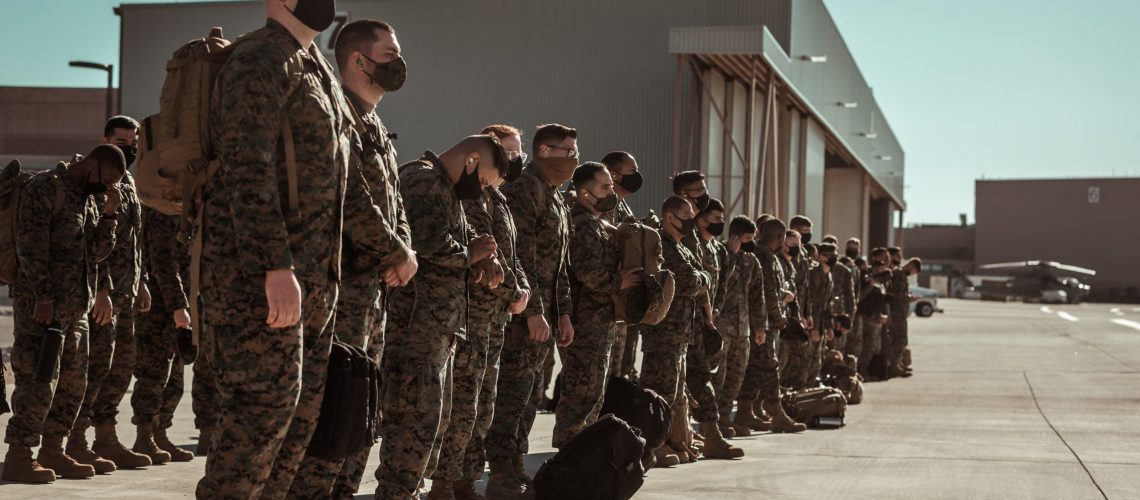One of the harsh realities of American life is that we are increasingly a nation divided. The cultural and political polarization of this country is manifested and reveals itself through our entertainment, sensationalized news media, and perhaps most concerning of all, our political process.
Political campaigns are increasingly “us and them,” declarations of political war from one side to another. Both parties engage in this behavior, both parties increasingly drag their constituents to the extremes of political rhetoric, and as the summer of 2020 proved, extreme political action is increasingly being taken on American streets.
Lawmakers in Congress stoke these fires, and more than ever, reconciliatory bi-partisanship has been abandoned for scorched earth, “all or nothing” legislation.
Jack Wright, a professor emeritus at Ohio State University who specializes in American politics, gave the following observation to Cooperative.com regarding the stark polarization of contemporary American lawmaking:
“The parties began to separate in the 1980s, and the trend really escalated throughout the 1990s. Where there used to be quite a few legislators in the middle—conservative Democrats, for example, or liberal Republicans—that is no longer true. Legislators of both parties are voting the party line with greater regularity, making cross-party coalitions much harder to form.”
Quorum, who sells a public affairs software targeted to policy makers, recently studied the downward trend of bi-partisanship in Congress through an analysis of the 115th Congress from 2017. Their findings are a sobering reminder of the polarization of the American legislature.
They found that:
- The 115th Congress introduced 7,162 bills, but only enacted 97
- In 1989, 35% of all bills were introduced with bi-partisan support-in 2017 only 24%
- The rate of bi-partisan sponsorship has declined by 30% from 1989 to 2017
So, what can American lawmakers agree on in this divisive climate?
According to Jeffrey Phillips, the Executive Director of Reserve Organization of America, and retired Army Reserve Major General, defense and veterans’ issues are the few things left that Congress can agree on.
In an op-ed for The Hill, he wrote:
“To the basics — and the basics always matter: Despite the tumultuous start of the 117th Congress, behind the scenes the right things occurred: committee members were assigned, legislative priorities were established, bills were introduced and reintroduced, and the framework for the budget was put together.
As ROA’s director of legislative and military affairs put it, “I never thought I would be looking over both shoulders when I told ROA members, as if it were a dirty secret, ‘Psssst, Congress is working in a bipartisan manner even if you don’t see it on the news.’” “

This willingness to work together on defense & veterans’ issues was put on display in May of this year when the House Committee on Veterans’ Affairs was able to pass 25 bi-partisan bills out of committee.
Their committee website reported:
“Today, the House Committee on Veterans’ Affairs held a Full Committee Markup passing all 25 bills on the agenda, including legislation to build equity for all veterans, improve mental healthcare access, provide COVID-19 relief, strengthen oversight of VA, and expand economic opportunities for veterans. By passing these bills, the Committee can advance Chairman Takano’s Priorities to build a more welcoming VA, combat veteran suicide, improve educational opportunities, and provide rigorous oversight of VA. The Committee also approved its Fiscal Year 2022 Budget Views and Estimates Letter. All bill text can be found Here.”
Considering the slim success rate that bills face when working their way through Congress, in general, it was also noteworthy in November when President Biden signed 4 bills concerning several veterans’ issues into law.
At the signing ceremony, the President said:
“We have many obligations, but we only have one truly sacred obligation, in my view. And that is to prepare those we send into harm’s way, care for their families when they’re gone and care for them and their families when they’re home. And that’s a lifetime commitment.”
At the time of this writing, Congress has only enacted 70 of the proposed bills they have introduced into law in 2021. That is 1%. This means that these four bills for veterans alone represent 5% of all the bills signed into law by the 117th Congress in 2021.
But if Republican and Democrat lawmakers can only seem to get along on certain issues, veterans’ issues being the most popular, it is because their constituents largely agree on the obligation our country owes its veterans.
In a 2014 Gallup poll on Americans’ Issue Priorities, it was revealed that improving veterans’ healthcare was the number one bi-partisan issue Americans agreed on.
87% of Americans poll agreed that this was a top priority.
Perhaps equally important for veteran advocacy is that the majority of Americans also believe that the government does not do a good enough for veterans.
YouGov polled 11,000 Americans for Veterans Day 2020, finding:
“52% of US adults believe that the US government generally does a bad job providing resources for veterans.”
High bi-partisan support for veterans combined with low approval of the government’s handling of their issues, is an opportunity for advocacy groups to continue leveraging support for candidates and bills which benefit our country’s vets.
Ultimately, veterans’ issues are one of the few things they can agree on, because it is one of the few topics in which they must find common ground. As a nation, Americans hold their veterans in the highest regard, and while they are increasingly divided on nearly every other issue, we still agree that we owe a debt to our nation’s heroes. Because we as a people agree on veterans’ issues, our legislators must continue to find ways to deliver for them on our behalf because they know they will be held accountable.
Image Credit: Photo by Joel Rivera Camacho on Unsplash
Like millions of other Veterans across the United States, Retired Staff Sergeant, Wesley Black, depends on the Veterans Affairs medical system for their care. When Black first went to a VA reporting blood in his stool, he was told he was just suffering from irritable bowel syndrome. Now, Staff Sergeant Black at just 35 years old is battling Stage-4 Colon Cancer.

